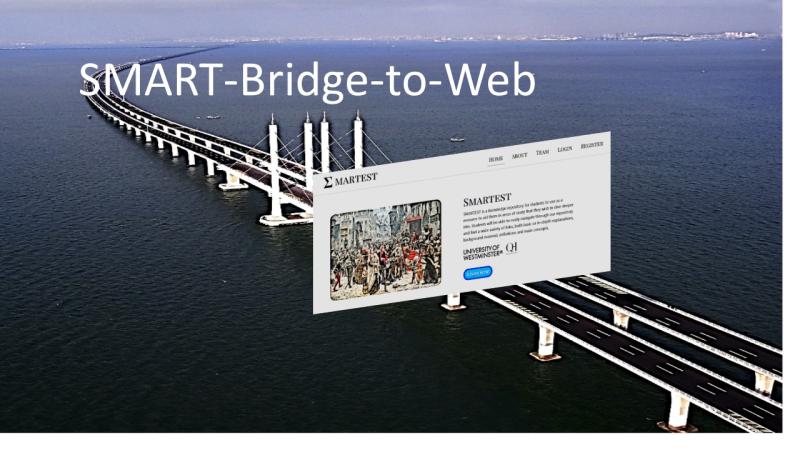Westminster students and alumni have been given an employability boost through an opportunity to showcase their impactful Computer Science and Engineering research projects at the 5th Annual Student-Staff Research Conference which took place online on 2 March.

It is the School of Computer Science and Engineering’s tradition to invite current undergraduate and PhD students as well as alumni and academics to present their research. The annual conference does not only allow its participants to be engaged with the breadth of research at the School at all levels, but also equips Westminster students and alumni with skills related to research and presentation, which give a real boost to their employability.
Current second and third-year undergraduate students, Shivangi Shah and Wesam Makadici, both introduced research related to developing e-learning platforms, a particularly hot topic given the vastly increased demand for such platforms in recent years. For example, Shivangi presented ‘StarGate’, a co-creators project in the realms of which she set out not less than analysing different learning styles, identifying the one that is the most effective when learning online, and developing a protype platform which helps students learn interactively and the most effectively. When researching, Shivangi found that graph-based learning and picture-based learning were the most efficient styles of e-learning. Shivangi’s team then went on to build a prototype learning platform which implements these features. They also added functionalities that would help in easy navigation and provide students with their own presence at the platform allowing them to edit the learning graphs and add their notes themselves.
Westminster PhD researchers also gave an insight into their research revealing enormous potential for making a real-world impact. For example, Nodira Nazyrova uses machine learning and Artificial Intelligence (AI) algorithms to predict the hospital readmission of elderly patients. Readmission rate is an important indicator of the hospital quality of care. With the upsetting increase of readmission rates worldwide, especially in geriatric patients, predicting unplanned readmissions becomes a very important task, which can help to improve the patient’s well-being and reduce healthcare costs.
Other PhD researchers presenting included Farah Sinada, who investigates image analysis and feature extraction for tropical diseases diagnosis, Mustafa Hajmohammed, who looks at the concepts shifting in datastreams, and Nalaka R. Dissanayake, who presented his research on the methodology of rich web applications.
Westminster alumni were contributing to the conference presenting their First-Class final-year projects. Marley Kurtis spoke about a mathematics teaching app, Pradeepti Boburu presented her analysis of machine learning in automated reasoning, and Sarjjad Choudry shared his project on educational tasks tracking. The alumni also shared reflections on their careers.
University of Westminster researcher David Chan, and Ganesha Thondilege, Deshan Sumanathilaka and Iresh Bandara from the Informatics Institute of Technology, also introduced their fascinating research projects related to novel e-learning platforms such as Smartest, approaches for denoising of images, techniques to improve accuracy of texting in “Singlish”, a transliterated version of Sinhala, the language of the largest ethnic group in Sri Lanka, and applications of serious games in helping children affected by Down Syndrome.
An account of multiple projects in the School’s research groups was given by Professor Tamas Kiss, Centre for Parallel Computing leader and School Research Director, Dr Daphne Economou, Serious Groups leader, Jeff Ferguson, VR Lab Director, and Dr Alex Bolotov, Software Systems Engineering Group Leader. Fatima Fatwick also gave a presentation on the successful University of Westminster co-creators scheme.
Organised by Dr Bolotov and chaired by Farah Sinada and Nodira Nazyrova, the conference received fantastic reviews, participants saying that it was an “excellent event” and of “great importance”. It was described as “very useful to get a clear picture of the University and the School’s research activities.”
Visit the conference website to access the abstracts of the presentations and the recordings of the talks.


